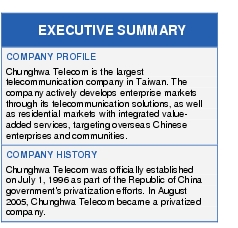

Challenge/Opportunity
• Solve the technical and commercial challenges associated with cross-platform delivery.
• Establish the right tariff to help ensure profitability, but not be too expensive for subscribers (some Asian markets expect free content, which limits the size of subscriber base who are willing to pay).
• Determine how to replicate the business model in other markets/regions.
• Compete against overseas and local competitors, and combat music piracy on the Internet.
Alliances/Partnerships
• Promotion example: "KKBOX Walkman Music eXpress" launched by Chunghwa Telecom, KKBOX, and Nokia (promotion time: from February through June 2008).
• Targeted at the holders of the designated Nokia 3G Chunghwa Telecom mobile phone users.
• The offer included a special price of NT$99 per month for the service (a discount of more than 30 percent).
• Almost 20 Nokia 3G mobile phones were suitable for this service, and users could download and install the application software on their mobile phones. Moreover, the Nokia 5610 XpressMusic model includes an exclusive built-in audio chip, which enhances the music-listening experience.

Strategy
• Unlimited access to the largest database of Chinese music. Subscribers can choose from more than 1.5 million tracks of music including Mandarin, Taiwanese, Cantonese, and English titles.
• Premium service subscribers have unlimited legitimate access to the music database and other services, and they can cache songs for offline access.
• KKBOX users can create their own music blogs, share their playlists, and make new friends based on their interests in KKBOX (online communities).
• With a single monthly subscription fee, users can stream and download music across multiple platforms (e.g., PC/Mac, smart phones, feature phones, IPTV/Internet radio, etc.).
• KKBOX offers "running lyrics/karaoke," a unique and popular feature that enables users to watch the music lyrics move along as the song is playing, and join in karaoke-style (hugely popular in Asia).
• Users can back up their music playlist on KKBOX servers, so their playlists can be easily retrieved if they are ever lost or damaged.
Success Factors/Metrics/Monetization
• Chunghwa Telecom gains direct revenues from access and bandwidth charges associated with music downloads. Indirectly, the company has benefited from improved customer loyalty thanks to KKBOX.
• Chunghwa does not provide specific figures regarding revenue contributions from KKBOX, but the acquisition has clearly helped Chunghwa's Internet business. Revenue increased by 2.7 percent year-over-year to NT$23.7 billion in 2009. The telco has stated that online music services were a significant contributor to this growth.
• KKBOX is now the most popular music service in Taiwan and the largest music subscription service in the Greater China region. In Chunghwa's home market (Taiwan), KKBOX has over 4.5 million users and 340,000 premium service subscribers. These figures represent success for KKBOX given Taiwan's total Internet population of 13 million (and the high rate of digital piracy in the region).
• KKBOX generates revenues from content-related service charges. Although there is no public data about KKBOX's specific financial status, founder and COO, Chris Lin has publicly stated that the company is now profitable.
Company Backgrounds
• Read Chunghwa Telecom overview
• Read KKBOX overview
